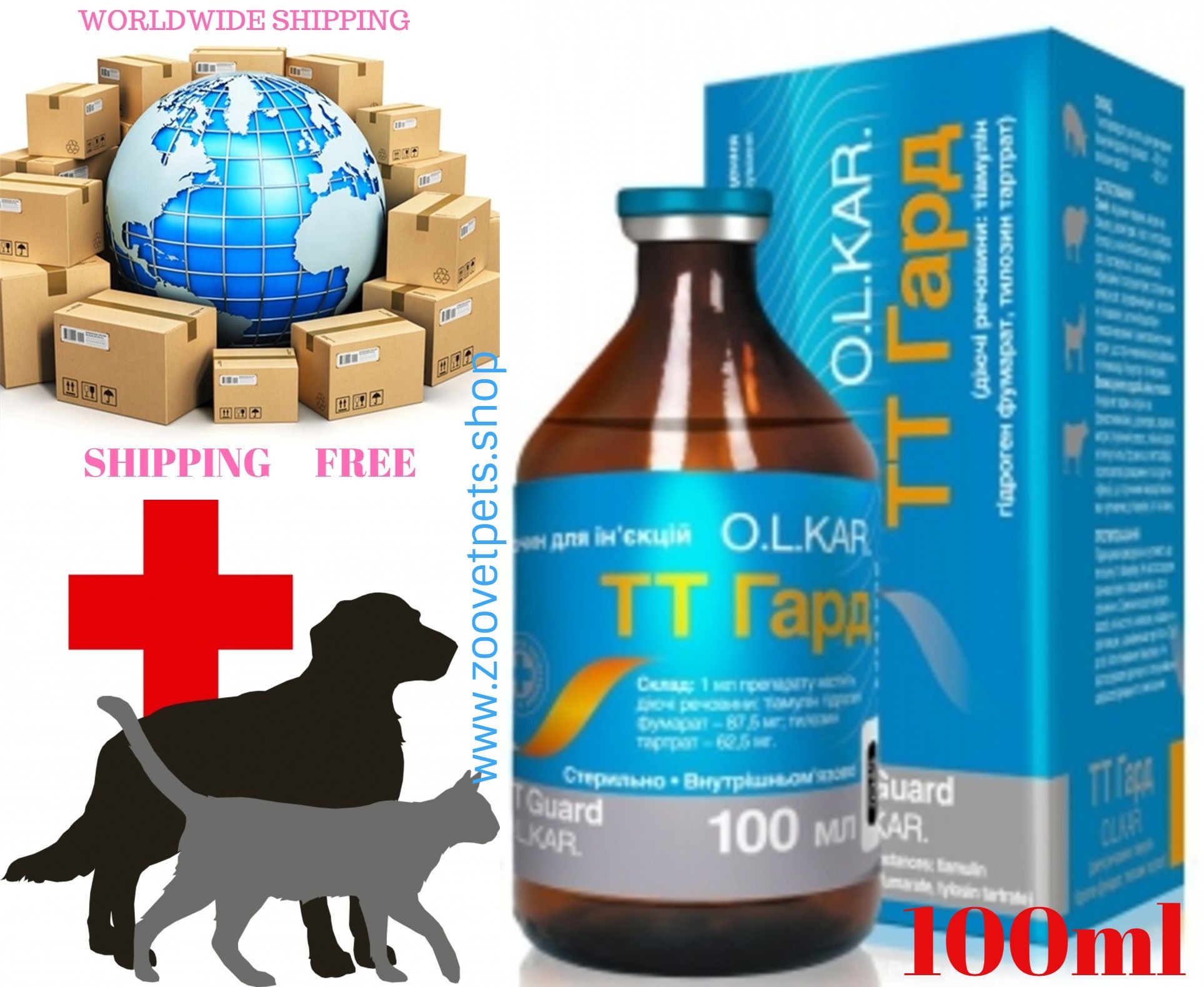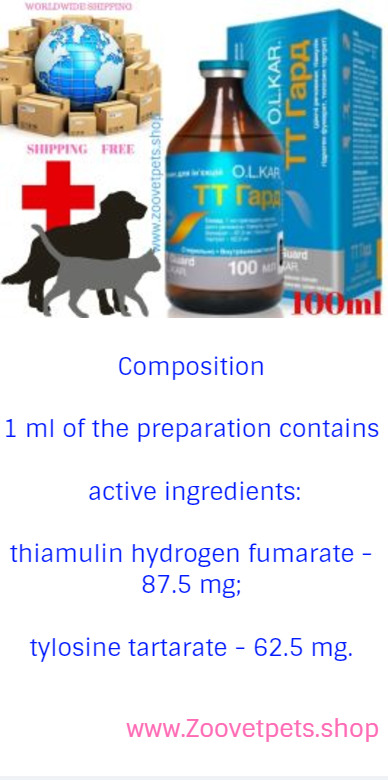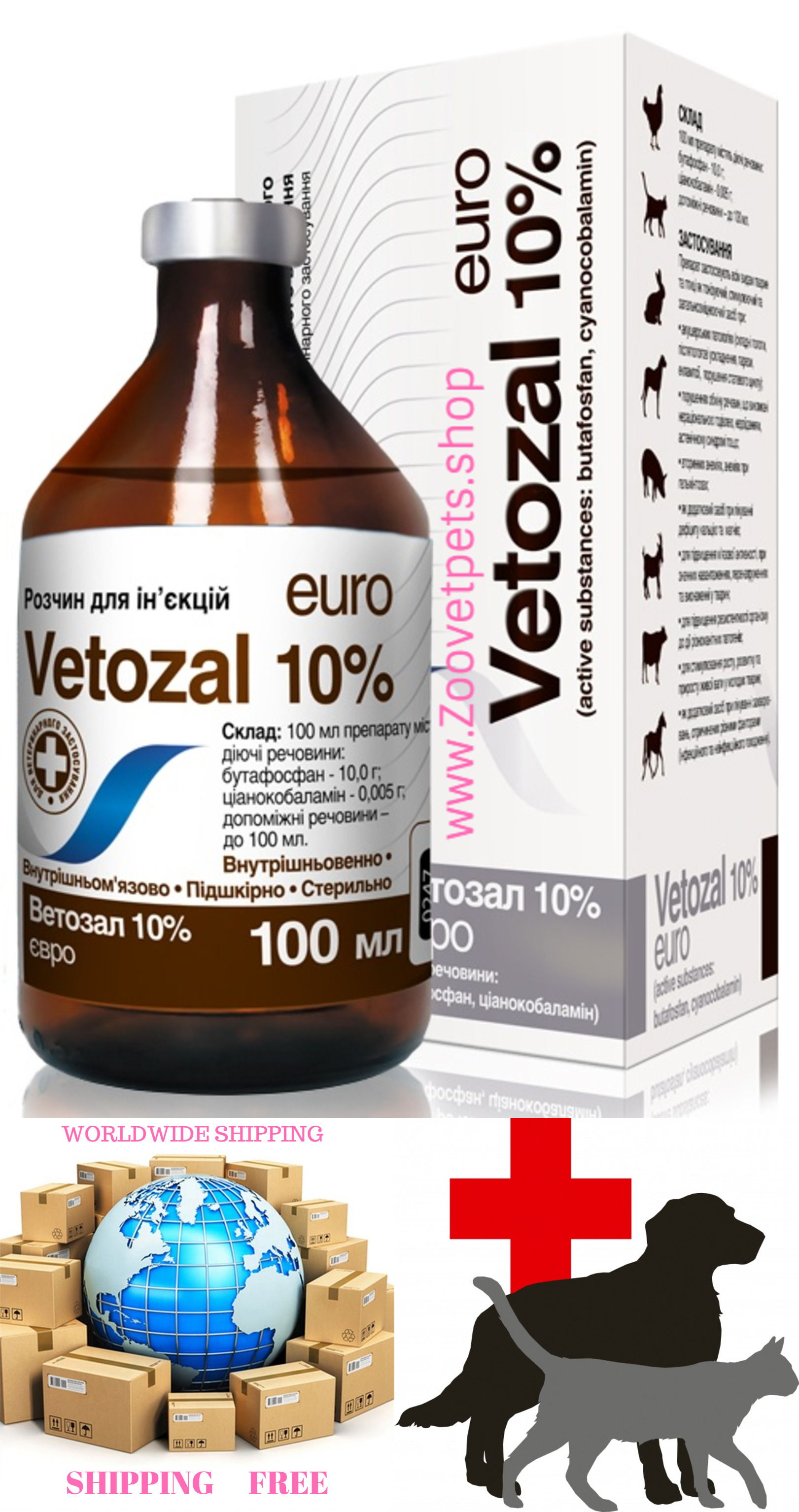Description
Description:
Transparent solution of yellowish color.
Composition:
1 ml of the preparation contains
active ingredients:
Tiamulin hydrogen fumarate – 87.5 mg;
Tylosine tartrate – 62.5 mg.
Pharmacological properties:
The combination of thiamulin and tylosine in a certain ratio provides a wide range of activity against most bacteria, mycoplasmus, rickettsia, spirochaetes, treponemus, chlamydia, which are the main pathogens of diseases in farm animals.
Tiamulin is a semi-synthetic antibiotic of the plevromulin group that inhibits the synthesis of proteins to sensitive microorganisms. Thiamulin acts bacteriostatically against Gram-positive (Erysipelothrix spp., Staphylococcus spp., Streptococcus spp., Listeria monocytogenes, Corynebacterium pyogenes) and Gram-negative bacteria (Pasteurella spp., Klebsiella pneumoniae, Campylobacter coli, Lawsonia intracellularis, Fusobacterium necrophorum); mycoplasmus (Mycoplasma bovis, M. hyopneumoniae, M. hyorhinis, M. synoviae, M. hyosynoviae, etc.); leptospira (Leptospira spp.); spirochaetes (Serpulina hyodysenteria, S. innocens); treponema hyodysenteriae and chlamydia spp.
Tylosine is an antibiotic from the macrolide group. Its bacteriostatic effect is based on the suppression of bacterial protein synthesis due to binding to ribosomes. Tylosine is active against Gram-positive (Actinomyces spp., Bacillus anthracis, Clostridium spp., Corynebacterium spp., Streptococcus spp., E. colli, Erysipelothrix rhusiopathiae) and Gram-negative bacteria (Brucella spp, Fusobacterium spp., Haemophilus spp., Pasteurella spp., Salmonella spp., Treponema spp., Bordetella bronchiseptica, Proteus mirabilis, etc.) and inhibits the development of some strains of Mycoplasma spp., Chlamydia spp.
Application:
Pigs: Treatment of animals with rye, dysentery, ileitis, leptospirosis, listeriosis, campylobacteriosis, colibacillosis, pasteurellosis, salmonellosis, infectious gastroenteritis, spirochaetes enterocolitis, atrophic rhinitis, enzootic pneumonia, actinobacillar pleuropneumonia and mycoplasmatic arthritis caused by thiamulin- and tylosine-sensitive microorganisms.
Cattle, sheep and goats: treatment of animals suffering from bronchopneumonia, dysentery, peritonitis, metrite, umbilical sepsis, purulent arthritis, ungulates, brucellosis, leptospirosis, postnatal complications and surgical infections caused by thiamulin and tylosine sensitive microorganisms.
Dosage:
Intramuscularly in a dose of 1 ml per 22 lb (10 kg) of body weight once a day for 3-5 days.
In case of enzootic pneumonia, mycoplasmatic arthritis in pigs, this dose is increased by 25-50%.
Before administration, the drug should be heated to a temperature of 25-30 ° C.
In 7-10 days after the treatment of pigs suffering from dysentery or ileitis, it is advisable to repeat the treatment with the same drug or other antimicrobial agents for oral use on the basis of tylosine or thiamulin in preventive doses according to their settings.
Contraindications:
Hypersensitivity to tylosine and thiamulin. Do not use sows in the first month after insemination. Pigs should not use products containing monenzine, narazine or salinomycin for at least 7 days before and after thiamulin treatment. Do not use simultaneously with penicillins, cephalosporins and lincomycin.
Cautions:
The slaughter of animals for meat is allowed after 10 days, the use of milk to feed people – 5 days after the last application of the drug. Meat and milk obtained before this date are disposed of or fed to unproductive animals, depending on the opinion of the veterinary doctor.
Some animals may have slight swelling, erythema, itching at the injection site, which disappear on their own for 2-3 days after the end of treatment.
Storage:
Dry, dark place at a temperature of 40-77F (5 ° C to 25 ° C)
.
After the first selection from the bottle, the drug should be used for 20 days, provided that it is stored in a dark place at a temperature of 35-42F (2 ° C to 6 ° C).
Shelf life – 3 years from the date of manufacture.







Reviews
There are no reviews yet.